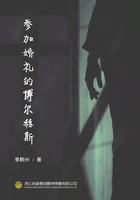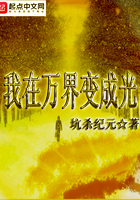I am an anarchist. My business is to stir up unrest and discontent, and that brings me every night to mingle with the crowd waiting for their dole of bread from Fleischmann's bakery. You do more than any one else in the whole country to create good feeling and dispel unrest, and you have done a lot of it to-night. I made up my mind to kill you right here, but you are such an infernal good fellow that I have not the heart to do it, so here's my hand."On one occasion I received an invitation to address a sociological society which was to meet at the house of one of the most famous entertainers in New York. My host said that Edward Atkinson, the well-known New England writer, philosopher, and sociologist, would address the meeting. When I arrived at the house I found Atkinson in despair. The audience were young ladies in full evening dress and young men in white vests, white neckties, and swallow-tails. There was also a band present. We were informed that this society had endeavored to mingle instruction with pleasure, and it really was a dancing club, but they had conceived the idea of having something serious and instructive before the ball.
Mr. Atkinson said to me: "What won me to come here is that in Boston we have a society of the same name. It is composed of very serious people who are engaged in settlement and sociological work. They are doing their best to improve the conditions of the young women and young men who are in clerical and other employment. I have delivered several addresses before that society, and before the audiences which they gather, on how to live comfortably and get married on the smallest possible margin. Now, for instance, for my lecture here to-night I have on a ready-made suit of clothes, for which I paid yesterday five dollars. In that large boiler there is a stove which I have invented. In the oven of the stove is beef and various vegetables, and to heat it is a kerosene lamp with a clockwork attached. A young man or a young woman, or a young married couple go to the market and buy the cheap cuts of beef, and then, according to my instructions, they put it in the stove with the vegetables, light the lamp, set the clockwork and go to their work. When they return at five, six, or seven o'clock they find a very excellent and very cheap dinner all ready to be served. Now, of what use is my five-dollar suit of clothes and my fifty-cent dinner for this crowd of butterflies?"However, Mr. Atkinson and I made up our minds to talk to them as if they needed it or would need it some day or other, and they were polite enough to ask questions and pretend to enjoy it.
I understand that afterwards at the midnight supper there was more champagne and more hilarity than at previous gatherings of this sociological club.
During one of our presidential campaigns some young men came up from the Bowery to see me. They said: "We have a very hard time down in our district. The crowd is a tough one but intelligent, and we think would be receptive of the truth if they could hear it put to them in an attractive form. We will engage a large theatre attached to a Bowery beer saloon if you will come down and address the meeting. The novelty of your appearance will fill the theatre."I knew there was considerable risk, and yet it was a great opportunity. I believe that in meeting a crowd of that sort one should appear as they expect him to look when addressing the best of audiences. These people are very proud, and they resent any attempt on your part to be what they know you are not, but that you are coming down to their level by assuming a character which you presume to be theirs. So I dressed with unusual care, and when I went on the platform a short-sleeved, short-haired genius in the theatre shouted: "Chauncey thinks he is in Carnegie Hall."The famous Tim Sullivan, who was several times a state senator and congressman, and a mighty good fellow, was the leader of the Bowery and controlled its political actions. He came to see me and said: "I hope you will withdraw from that appointment. I do not want you to come down there. In the first place, I cannot protect you, and I don't think it is safe. In the second place, you are so well known and popular among our people that I am afraid you will produce an impression, and if you get away with it that will hurt our machine."In the course of my speech a man arose whom I knew very well as a district leader, and who was frequently in my office, seeking positions for his constituents and other favors. That night he was in his shirt-sIeeves among the boys. With the old volunteer fireman's swagger and the peculiar patois of that part of New York, he said: "Chauncey Depew, you have no business here. You are the president of the New York Central Railroad, ain't you, hey?
You are a rich man, ain't you, hey? We are poor boys. You don't know us and can't teach us anything. You had better get out while you can."My reply was this: "My friend, I want a little talk with you.
I began life very much as you did. Nobody helped me. I was a country boy and my capital was this head," and I slapped it, "these legs," and I slapped them, "these hands," and I slapped them, "and by using them as best I could I have become just what you say I am and have got where you will never arrive."A shirt-sleeved citizen jumped up from the audience and shouted:
"Go ahead, Chauncey, you're a peach." That characterization of a peach went into the newspapers and was attached to me wherever I appeared for many years afterwards, not only in this country but abroad. It even found a place in the slang column of the great dictionaries of the English language. The result of the meeting, however, was a free discussion in the Bowery, and for the first time in its history that particular district was carried by the Republicans.
After their triumph in the election I gave a dinner in the Union League Club to the captains of the election districts.















